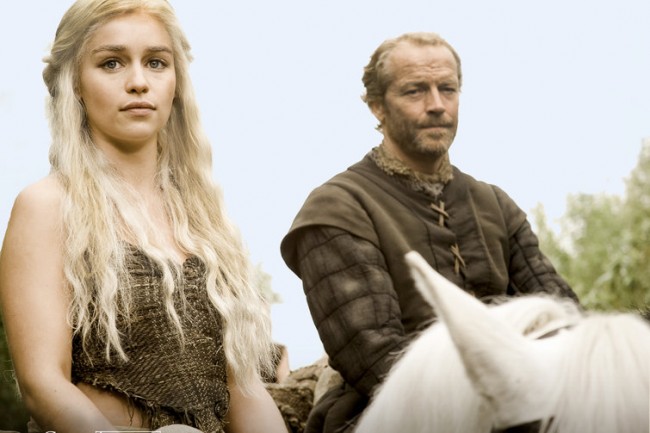Admit it Guardianista Handwringers, You Love Game of Thrones For The Sex And Violence…Just Like The Rest Of Us

Mic Wright’s Remotely Furious: Admit it Guardianista handwringers, you love Game of Thrones for the sex and violence…just like the rest of us
THAT irritating rubbing noise you can hear is the handwringing from British TV reviewers who love their restarted weekly dose of Game of Thrones but must make sure to tell their readers how appalled they are by the objectification of women and the gratuitous violence. That they remain surprised that the fourth season of the show for which the neologism “sexposition” was coined hasn’t suddenly converted to Guardian approved chin-stroking and Nordic knitwear covered leads is a little baffling.
While Game of Thrones has its unfair share of scenes set in brothels – Season 4’s opening episode included a memorable sequence introducing the omnisexual Prince Oberyn – it also has more strong female characters than most shows set in our modern reality. Two generations of Martell women – the imperious Diana Rigg as Olenna, The Queen of Thorns, and Natalie Dormer as the subtly effective Margaery – are running rings around the men of King’s Landing. Meanwhile, the towering Gwendoline Christie as Brienne of Tarth is one of the most striking characters on television and Emilia Clarke as Daenerys gets ever more commanding.
Best of all and, perhaps most disturbing for the hand-wringers, Maisie Williams’ performance as Arya Stark gets more steely with every passing episode…literally. In the Season 4 curtain raiser, Two Swords, the second blade after Jamie Lannister’s new weapon Oath Keeper was Arya’s sword Needle. Reunited with it in the midst of a tavern brawl, she killed two men, finally pushing it up through the neck of the sell-sword who stole it from her. Arya has been out for vengeance ever since she turned Jaqen H’ghar on her foes in Season 2 but now she’s doing the killing herself.
Complaining that the world of Game of Thrones is rife with sexism, violence and death is like moaning that Casualty features too many doctors or Coronation Street goes on about Hotpots too much. Viewers, including those mealy-mouthed reviewers, love the show because it lavishly realises an imagined medieval world where power struggles are not played out with press conferences and off-the-record briefings but blood and steel. And anyone hanging around to get off on the sex scenes is bound to be disappointed. They’re rarely, if ever, in the script to titillate, particularly is Joffrey is involved in any way.
An hour never feels like enough time to delve into Westeros’ web of misery and intrigue. There’s very few pure bad guys – besides the aforementioned Joffrey – and the ones we do root for – Tyrion and Jon Snow spring to mind – have not always covered themselves in glory. The introduction of Prince Oberyn, out to avenge his sister’s rape and murder at the hands of the particularly unpleasant Mountain, only sends more sparks into an already overstuffed tinderbox.
As the series goes on and the guignol gets grander you can expect to hear the sound of the hand-wringers getting louder and see many more barrels of virtual ink spilled on think pieces about what our love of Game of Thrones means. I think it’s pretty simple. As much as we like to consider ourselves as sophisticated and humanitarian, blood, guts, fire and brimstone are what gets our pulse raised. Shakespeare knew it and so does George R R Martin. Titus Andronicus is full of shocking sex and violence, the Bard just has the benefit of time and classic status. George will get there in the end. After all, his patrons at HBO have better marketing men.
Posted: 10th, April 2014 | In: Key Posts, TV & Radio Comment (1) | TrackBack | Permalink


